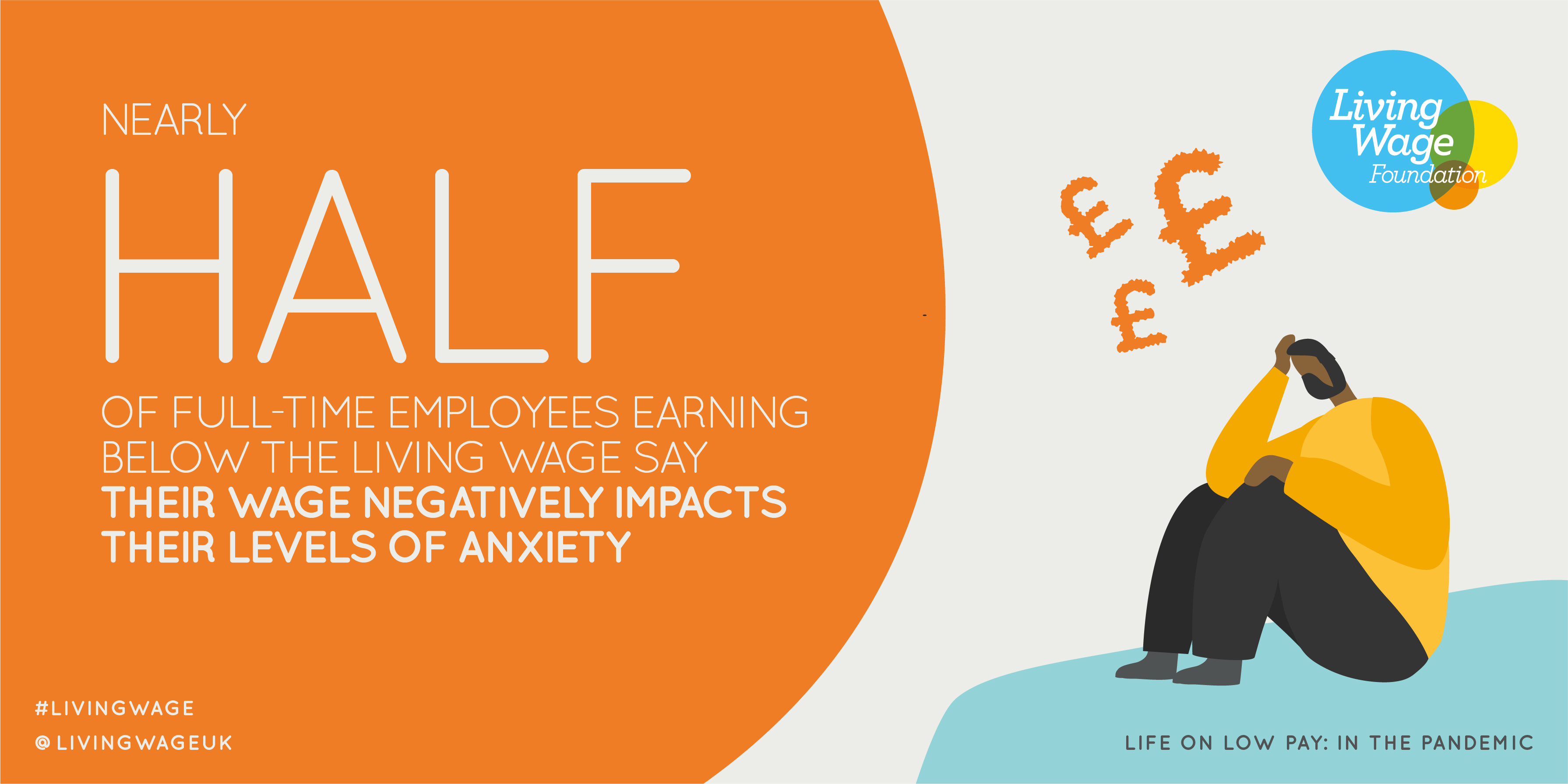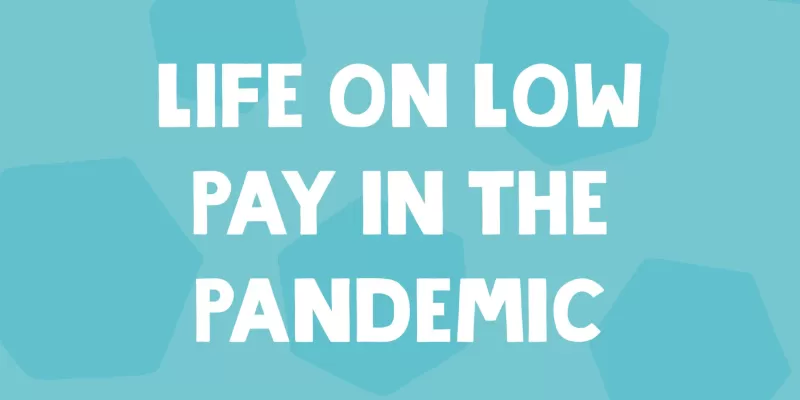New research shows the impact of low pay during the pandemic, with two-thirds of workers earning below the real Living Wage experiencing a fall in earnings since the pandemic began
Over a quarter of low-paid workers (amounting to over one million people[1]) have had to regularly skip meals since the start of the pandemic as a result of financial constraints, with over a third saying low pay had negatively affected relationships with close family and friends, and nearly half seeing a negative effect on their levels of anxiety, according to new research from the Living Wage Foundation.
The polling of over 2,000 employees in the UK working full-time but earning less than the real Living Wage (£9.50 outside of London and £10.85 within London) lays bare the effects of low pay on financial security, family life, and mental and physical health over the past year.
Polling found that among full-time workers earning below the real Living Wage:
- Over two-thirds (67%) had seen their pay fall over the past year as a result of the pandemic
- 29% had fallen behind with household bills in the past year
- 27% said they had skipped meals regularly for financial reasons in the past year
- A fifth (20%) said they had been unable to heat their home for financial reasons
- A fifth (20%) said they had fallen behind with their rent or mortgage
The polling of full-time, below-Living-Wage workers also found damaging effects on health and family life:
- Nearly half (46%) said that the pay they received for their work negatively affects their levels of anxiety
- Over a third (34%) said that the pay they received for their work negatively affects their relationships with close friends and family
- 31% of parents said that the pay they received for their work negatively affects their relationships with their children.

Laura Gardiner, Director of the Living Wage Foundation, said:
"We've long known that low pay leads to financial insecurity, but our analysis shows the much broader and more pernicious effects of low wages on workers and their families. The fact that many low earners - including essential workers who've kept the economy going through the pandemic - are forced to skip meals or forego heating their homes is unacceptable.
As the vaccine is rolled out and we inch back to some sense of normality, it's clear business as usual isn't an option. To recover and rebuild, and to truly level up living standards throughout the UK, we will need to see a greater focus on lifting people onto a real Living Wage that covers the cost of living. That means more businesses joining the 7,000 Living Wage Employers - over 1,200 of whom have signed up since the start of the pandemic - committed to paying a Living Wage."
Julie[2], a Supermarket Checkout Assistant, said:
"Working at the supermarket in the pandemic has had a huge impact on my mental health, it's increased all our responsibilities due to the Covid measures and definitely put more stress and anxiety on me. It resulted in multiple incidents where I needed time off work. Earning a real Living Wage would mean I don't have to live my life pay-check to pay-check. It would also mean I could afford to move out of my parents' house and increase my motivation to do the job."
Polling also revealed the potential benefits of the real Living Wage to both workers and the businesses they work for. When asked what they thought would happen if they were to move from the minimum wage to the Living Wage:
- 63% said it would improve their family life
- 65% said it would improve their mental health
- 70% said they would be likely to stay with their employer for longer
- 68% said they would be more likely to speak positively about their employer to others.
LIFE ON LOW PAY IN THE PANDEMIC REPORT
Building on our previous 'Life on Low Pay' report, this report explores the experiences of full-time, below-Living-Wage employees based on polling conducted by Survation in December 2020, We explore the impacts of the pandemic on pay, and the broader implications of being in low-paid work for health, finances and family life.

